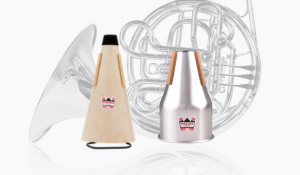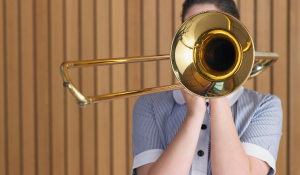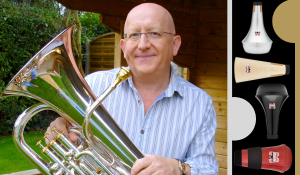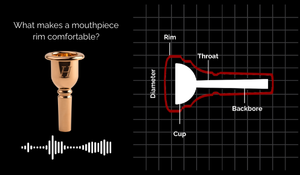Posts about:
Denis Wick Product Info

With horn players, what we put in the bell is very important. It starts at the very beginning with how to hold the instrument. The right hand position can make or break things like tuning, tone quality, projection, how easily the instrument plays, and even the range.
While muted passages become more common as players advance, the need for a mute in band or orchestra can happen after only a couple years. As with the position of the hand, the mute choice makes all the difference in how the horn plays.

Music is imaginary. It is created in our imagination. "If we want to have the greatest amount of success manifesting our imagination into reality, we need a strong connection to the physical world." Enter the mouthpiece. What you buzz is what you hear. "Buzzing is like singing for your lips." Continue the discussion in this video clinic title Buzzing - the Secret to Brass Playing Success with long time Denis Wick artist, Victor Haskins. Make sure to follow his YouTube page and access a huge library of performance and career advice for brass players.

A great band director is the start to a great music education. However every great band director knows a great private teacher will lead their students to the next level. These private teachers are carefully chosen by band directors because they can mold the future success of each of their students and encourage the growth of their band programs.
So what is a band director looking for in a great private teacher?

"Is a trumpet or trombone mute more than it's shape?" Logically the answer is yes. However in the manufacturing world, it is a bit more of a gray area. Low-priced student mutes have become as numerous as flavors of ice cream these days. So how do you define quality? How do you differentiate between mute functioned and mute shaped?

When do I need to find a new mouthpiece?
After a student has learned how to make a sound on their new brass instrument, and make it consistently, their next focus is on improving that sound. Since sound starts with the mouthpiece, your first upgrade should logically be the mouthpiece. But when and how do you find the right one? Use these tips to understand the process and help you student take their fist steps to expanding their sound and skills.





